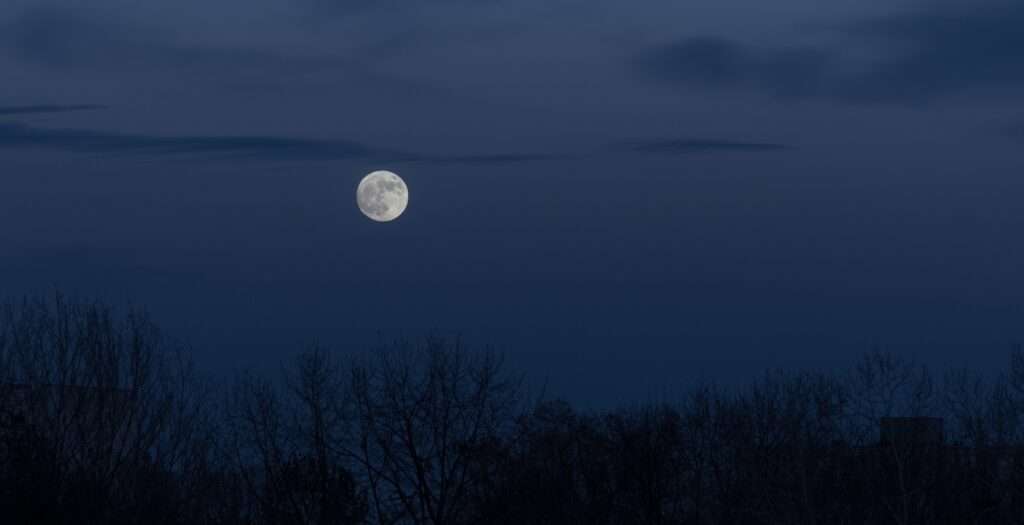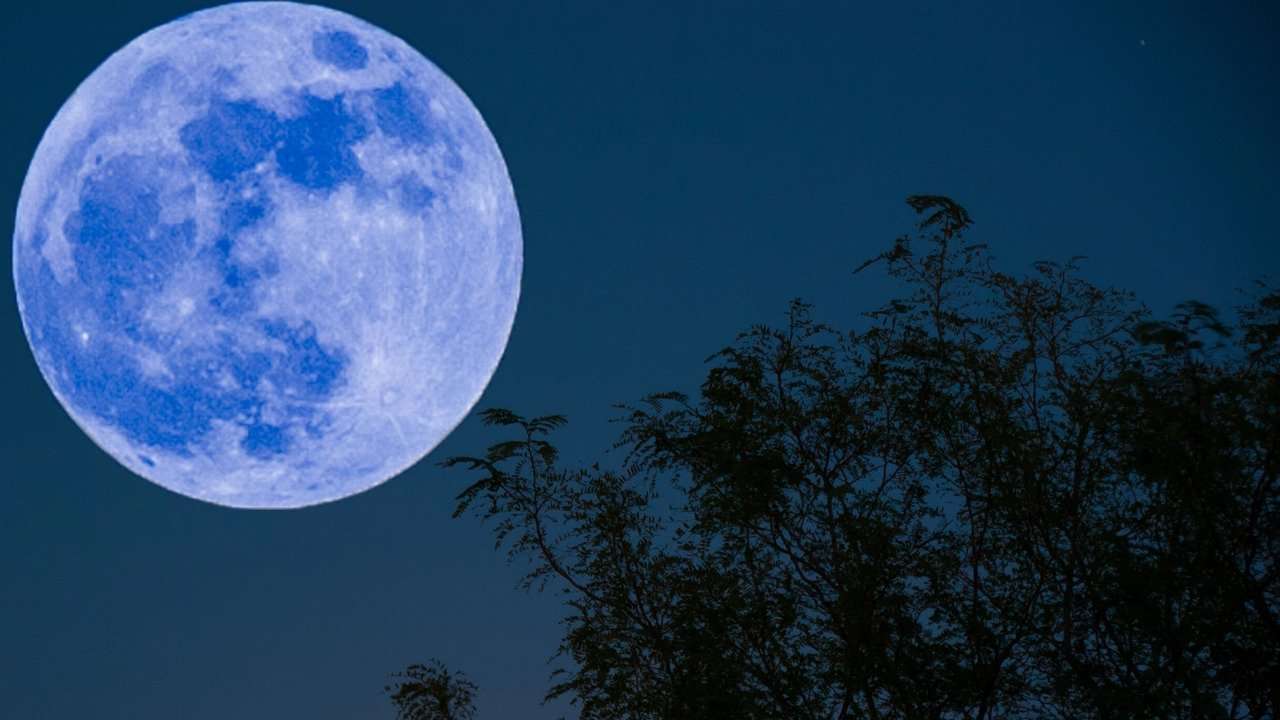Does the full moon really affect the quality of sleep?
Tonight we can admire the Super Moon, also popularly called the Blue Moon. Afraid of sleeping badly? Scientists have long been tried to find a consistent association between lunar cycles and human physiology and behaviour, however, so far the evidence for the modulation of sleep timing by moon phases is controversial [1-3]. An interesting Swiss study showed that in the vicinity of the full moon, delta electroencephalogram (EEG) activity during NREM, sleep was reduced by 30%, total sleep duration decreased by 20 minutes and the time to fall asleep increased by 5 minutes [3]. These changes were associated with a decrease in subjective sleep quality and a decrease in endogenous melatonin levels.
What is melatonin?
Melatonin is a hormone that is synthesised by the pineal gland in the absence of light. It peaks between 2 a.m. and 4 a.m. and then gradually decreases as morning light approaches. When the light stimulus reaches the retina, a signal is transmitted to the epiphysis where its secretion is inhibited. Melatonin plays a crucial role because it regulates the body’s circadian rhythm. The circadian rhythm is identified as the rhythms of sleep and wakefulness, marked by specific physiological processes, and it is important that they are equally respected: in fact, the quality of sleep determines the quality of daytime life, and vice versa.
How to improve sleep quality?
About 60% of adults experience poor sleep quality each night. There are more than 80 different sleep disorders, and among the most common disorders we found: not getting enough sleep, not having a restful sleep, having difficulty falling asleep, constant awakenings. Sleep difficulties are linked to both physical and emotional problems and can affect general health, safety, thinking, daily functioning and quality of life in all age groups. Moreover, ageing is often associated with changes in the sleep-wake cycle due to changes in melatonin secretion.
To improve sleep quality, it is advisable during the evening to avoid caffeinated beverages and energy drinks, to follow a healthy and balanced diet, eliminating high-calorie meals, to reduce the use of electronic devices, TV, video games, in order to avoid any light sources that reduce melatonin secretion, to keep bedtime at night and waking up in the morning constant, and to leave stress and worries out of the bedroom.

Melatonin has been extensively studied both in vitro and clinically, demonstrating safety and efficacy in preventing or alleviating possible disturbances from jet-lag, and in helping to reduce the time required to fall asleep [4]. So taking melatonin, if possible at the same time half an hour before bedtime, can be a valuable aid in improving sleep quality. Passionflower incarnata and Valeriana officinalis, herbaceous plants well known for their relaxing effect in cases of stress or sleep, can also contribute to better rest and promote mental well-being.
delthaSON® is a dietary supplement based on Melatonin, Valerian and Passionflower, which, thanks to its components, offers a relaxing action without the side effects typical of pharmacological treatments. In fact, melatonin helps to alleviate the effects of jet lag and reduce the time required to fall asleep. The two natural extracts, Valerian and Passionflower, aid relaxation in cases of stress or sleep and promote mental well-being.
You can find more information here
Disclaimer: The content is not intended to be a substitute for professional medical advice, diagnosis, or treatment, and does not constitute other medical advice for specific medical conditions. Please consult your healthcare provider with any questions or concerns you may have regarding your condition.
Reference
[4] Regolamento 432/2012

